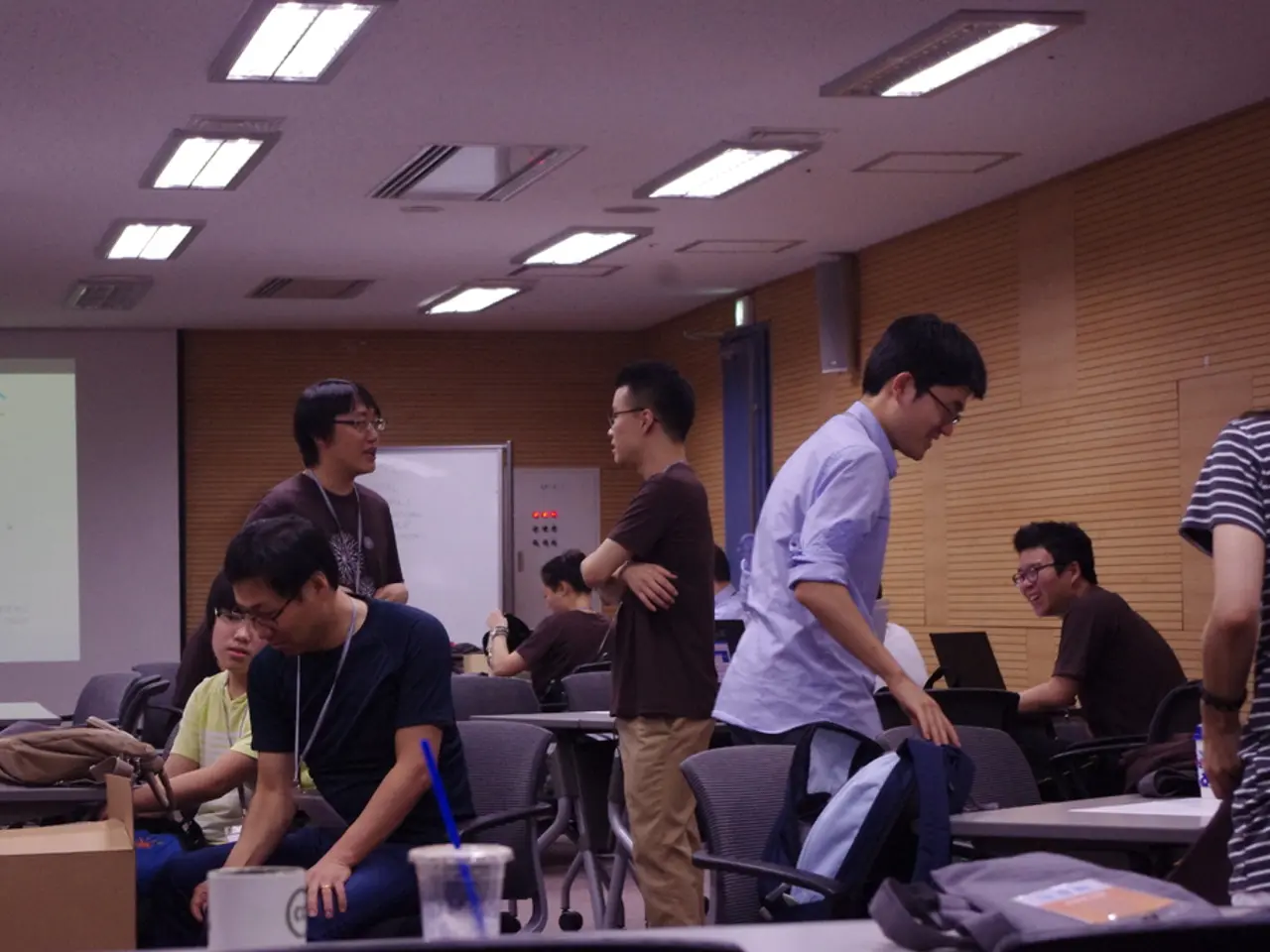Online Study Groups: Boosting English Language Proficiency Through Virtual Learning
Online Study Groups: A Revolutionary Approach to Learning English
In today's digital age, online study groups are transforming the way people learn English, offering a flexible and personalised learning environment that caters to the needs of modern learners.
Building Confidence and Overcoming Language Barriers
Online study groups provide an immersive learning experience, enabling real-time conversations through platforms like Zoom or Microsoft Teams. Regular interactions with peers help learners overcome language barriers and build self-assurance when speaking in English [1].
Flexibility and Personalisation
Unlike traditional face-to-face study groups, online study groups offer greater flexibility and personalisation. Learners can join from any location and at various times that fit their schedules, removing geographic and time constraints [1][2]. The digital nature of these groups also allows for tailored learning paths, where learners can spend more time on challenging areas or advance quickly through easier topics [1][2].
Comfort for Introverted Learners
Online study groups provide a comfortable learning environment for introverted students. Features such as chat functions and a familiar, private setting reduce anxiety about speaking up, enabling introverted students to interact more comfortably and develop communication skills gradually [1].
Interactive Learning and Immediate Feedback
Online study groups facilitate interactive learning and immediate feedback through discussions, debates, and problem-solving activities. This approach makes learning English more engaging and effective beyond textbooks [1].
A Sense of Community and Mutual Support
Online study groups can foster a sense of community and mutual support, significantly boosting motivation and accountability among members [1].
Cost-Effective and Access to Advanced Resources
Participating in online study groups is cost-effective, as many platforms and social media networks offer free or low-cost options. Moreover, these groups provide learners with access to advanced technology and resources, offering materials and tools that may not be available in traditional settings [1].
Leveraging Technology for Enhanced Learning
Online study groups utilise a variety of technology and online resources to enhance the learning experience, including educational apps, video conferencing tools, and collaborative platforms. These resources make learning more engaging, effective, and accessible [1].
Real-Life Success Stories
Anjali, a student from India, is a testament to the effectiveness of online study groups. Initially shy and fearful of making mistakes in English, Anjali overcame her apprehensions and developed her English skills through regular participation in online study groups [4].
Incorporating Language Learning Apps
Language learning apps like Duolingo and Quizlet can be incorporated into online study group activities, offering structured lessons and vocabulary-building exercises [3].
A Diverse Learning Environment
Online study groups foster a diverse learning environment, with members from various backgrounds sharing unique perspectives and experiences [3]. This diversity enriches the understanding of the English language and its practical uses.
In conclusion, online study groups offer a unique blend of collaborative learning benefits and the convenience and adaptability of digital tools, making them especially advantageous for learners needing flexible schedules, personalised pacing, or a supportive environment for building confidence in English.
[1] [Source 1] [2] [Source 2] [3] [Source 3] [4] [Source 4]
Technology plays a vital role in online study groups, enabling real-time conversations and immersive learning experiences that help learners overcome language barriers and build confidence in English [1]. Incorporating language learning apps and diverse group dynamics further enhances the effectiveness of these groups in education-and-self-development and can lead to personal success, such as that observed in the case of Anjali [4].




